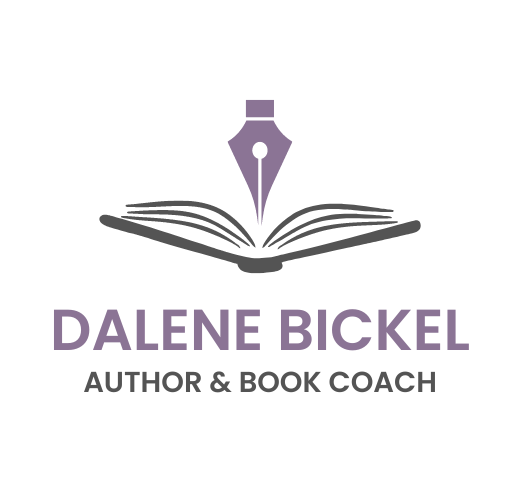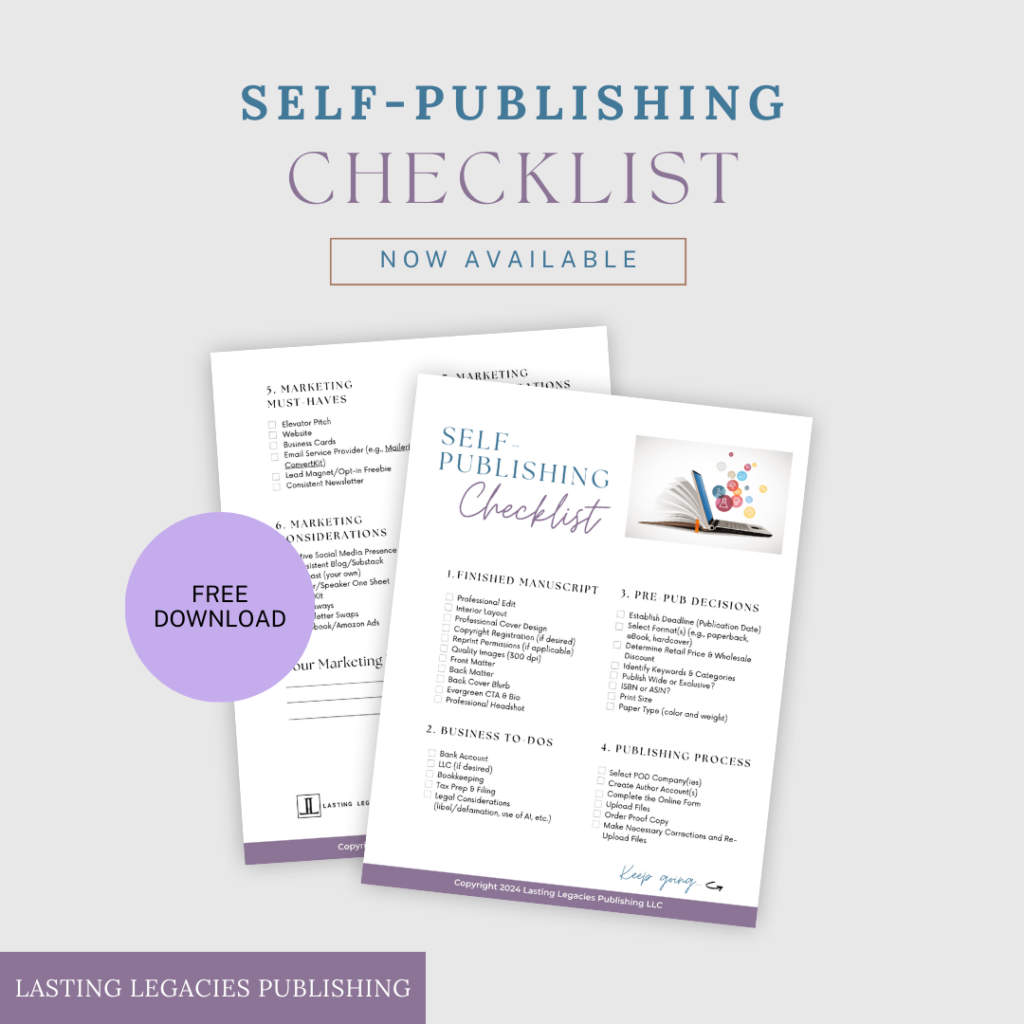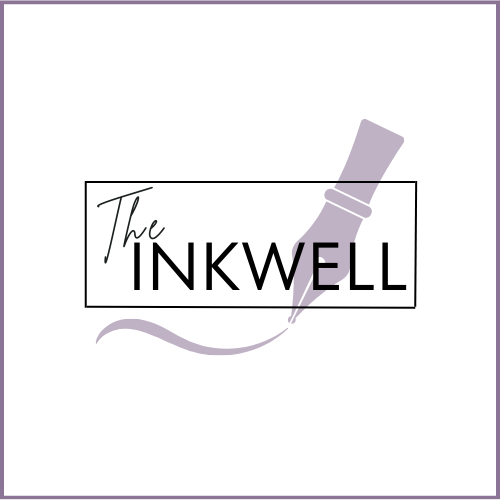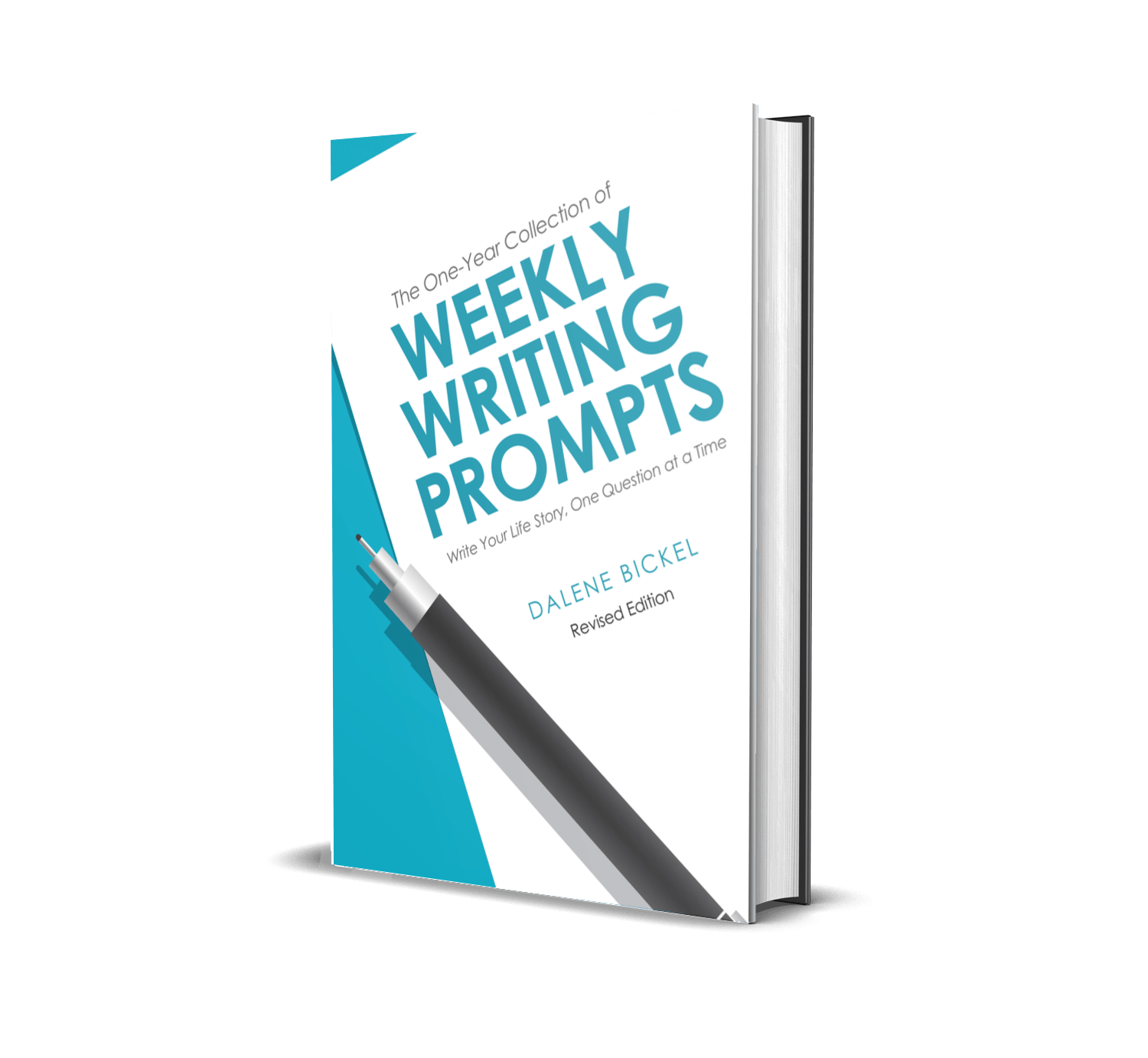LISTEN
WATCH
READ
Note that the following interview is based on one person’s personal experience. Not every publisher (hybrid or traditional) will share all of the same levels of service that she shares in the following discussion.
Always conduct your own research, ask questions, and seek the Lord’s guidance when deciding whether to self-publish, hybrid publish, or tradtionally publish.
Why Amanda Waters Chose Hybrid Publishing
One of the things that I really try to emphasize is that not all hybrid publishers are the same.
I initially submitted to agents for my first book, trying out the traditional publishing route. In the middle of my submission process, I went to a hybrid publisher’s website because I knew they were a smaller company and they were accepting submissions. So I submitted to them.
They were one of many submissions that I had going during that time; every few weeks I continued to send another few query letters to agents until I received an acceptance from the hybrid publisher.
The company that I went with, they don’t accept every manuscript and sometimes they close to submissions because they’re full up on what they can do.
That is one reason why I felt comfortable working with them — because I knew that quality was important to them. They weren’t just a clearing house, which is fine, if that’s the way you want to go.
It was important to me to have a really good quality published book. And I wanted to feel like I was in good hands working with them.
The Hybrid Publishing Model
Amanda: We had a conversation about their model, which is where the author funds the publishing and then the publisher provides all of the professional services, support, and everything that needs to happen to publish the book.
And one of the things with this, hybrid publisher is that I, as the author, had a lot more control over things than you do with a traditional publisher. There are certain things, of course, that you don’t have control over. Like I don’t have control over how long it takes them to do that process, but I can say, well, I want to have a publication date of this date, is that possible?
And they’ll say, yes and here are the deadlines you’ll have to meet if you want to do that. But that’s something that I have a lot of say in.
And then as the author, of course, I retain all the rights. I get to set the price, I get to set the discount. they’ll make recommendations because they have the knowledge of the industry that I don’t.
I get to pick my cover art. So that’s one of the benefits of it, is most of the control is with the author as far as decision making and that kind of thing. In fact, this company has their own designers that they work with, but I ended up hiring a friend of mine who’s a professional graphic designer. They were like, “Yeah, that’s fine; it just needs to meet these file specifications.” And then they deducted that cost out of my overall costs so I didn’t have to pay extra for design that I wasn’t getting.
So the publisher walked me through the different levels of the entire process. We signed a pretty straightforward contract as far as what they would do, what I would do. And we went from there.
Dalene: I think that’s good and very important to have someone walking you through that process. I have heard of other companies that that’s not the case: you fork over the money, upload your manuscript, and then you don’t hear from anybody until it’s done. So I think that’s a really important thing for people to consider and do their research before deciding on a publisher.
Editing with a Hybrid Publisher
Amanda: They have a few editors on staff and I ended up doing a developmental edit with them because this was my first book and I had not hired my own editor before that. And so I felt that was important to do. I was really pleased with that editor, she was amazing.
So we did a developmental edit, we did a copy edit, and then a line edit through the whole process. I was really pleased. I was in direct contact with the editor through each editing process.
I think the whole editing phase took about three months. Part of that I was shooting for a specific publication date so, I worked on my end pretty hard getting my edits done quickly.
Do you have to purchase a certain number of books upfront with a hybrid publisher?
Amanda: They had two different options. You could sign a contract where you did agree to purchase a certain number of books, or you could sign a contract where the base price was a little bit higher, but you did not have to buy any copies.
If you wanted to really focus on online sales it was a little bit higher of a base price. If you did want to purchase author copies your base price was lower and then you just agreed to buy copies at your author discount price, which is what I ended up going with, because I had some plans for in-person events and things like that.
So from start to finish, it took about 10 months to have my book in hand.
In hindsight, I will say I probably would have slowed myself down a little bit because there are a few things that I did kind of rush myself through. I was just trying to hit this publication date. There are some things that I missed, but that was on me.
The Question of Ownership Rights
Dalene: So when you’re trying to decide if a hybrid publisher is right for you, it’s critical to consider the rights. As an author, you want to make sure that you retain the rights if you’re hybrid publishing and that it’s outlined in the contract. You definitely want to make sure that’s in the contract.
Amanda: Yes.
Dalene: For anyone who isn’t aware of why the rights are so important, it means that since you own the rights, you’re allowed to do whatever you want with the content and cover of that book. You’re allowed to market it in the way that you want to do it.
Whereas with traditional publishers, they own the rights. Say you want to sell your book or do something with it on your own or another’s website. Well, you have to get their approval before you can do that. Or say you want to do an audiobook. You can’t just go out and do an audiobook of your book; you have to get their approval first and maybe use their service providers or whatever. So rights are really, really important.
One thing that you might want to also look at in the contract are what are the clauses for you to get out of that contract? Say you start the publishing process and they promise you this certain level of quality, but you get it back and it is not at that level. I have spoken to someone that this has happened to but they didn’t have a clause in their contract. They couldn’t get out of it. They were stuck with that. So you know, make sure that you have an option to get out of that contract if they’re not upholding their end of the bargain.
Amanda: Yeah, definitely.
Do Hybrid Publishers Offer Any Marketing Assistance?
Amanda: The marketing assistance would have been something separate and I did not take advantage of that option. That’s something that they do separate from the publication.
But they were very helpful with answering some basic questions and also giving some ideas as far as like, do you have a website already? Are you on social media? And they sent me graphic files that I could use to post on social media and on my website. So they did give me the tools where I could do that myself.
Do Hybrid Publishers Handle Book Distribution?
Amanda: They took care of all the distribution on Amazon, Ingram, Barnes and Noble, and their website. They also took care of the ISBN, everything like that.
Those were the things that were appealing to me about working with a hybrid publisher as opposed to self-publishing. I knew I could learn to do all these things and I could go through the steps myself — I could research editors and hire people to help me — but that felt overwhelming because you have to figure out who’s good. There’s a lot of research that goes into that.
I looked at their catalog. I looked at the authors that they had published before. Which is something I recommend. go to their website, see what have they published, what are the authors that they published? You could reach out to some and say, Hey, did you have a good experience? Yes. I felt like I was able to just sort of one stop shop, kind of like, I can just go here. They’re professionals, they’ll answer my questions, they know how to do everything, and I’m willing to pay a little extra than doing it myself because I don’t know what I’m doing, and it just felt less overwhelming to me.
Dalene: I personally am a self-publishing fan, but I agree that it all depends on a lot of variables. Budget is one. I don’t say that you should never hybrid publish. Obviously you had fabulous experience. You just have to be careful and do your research. Like when you’re hiring anyone, whether it’s a plumber or a car mechanic or anybody, get several bids; interview three different people:
- Are they offering similar packages and services?
- Are their prices within the same range as everyone else? That would be a huge red flag if they’re three, five, $10,000 more than everybody else.
- How do their overall processes and contracts differ?
Make sure that you understand what is written in that contract, and it wouldn’t hurt to pay the hourly fee for a local attorney to review it, just to make sure that this is in your best interests and that you absolutely have your rights to the book.
Amanda: And I would say too, as part of the research process into a company, how responsive they are to communication is really key. If they’re not responsive to me, that’s a red flag because that means they either don’t really care or they have too much work to respond. If they’re not responding to your emails or if they aren’t really answering the questions that you ask them, then I would definitely stay away from that.
Switching from Hybrid to Traditional Publishing
Amanda: I’m a member of the Writer’s League of Texas and I read in their newsletter that somebody was publishing with a small traditional publisher based in Texas where I live, and they were open to submissions directly from authors. So I was like, why not try it?
And so I submitted to them and they emailed back and they said we like your manuscript, but if you do a few things to it, And submit it again, let’s talk. I thought, well, this sounds promising. So I did that and sent it back and they said let’s talk.
I had a great experience with my first publisher, but one of the upsides to going a traditional route is that you don’t have to put out any money upfront. And so I tried it for my second book from a budgetary standpoint.
The Traditional Publishing Model
Amanda: With the traditional model, the publisher has the rights, they do all the publishing, and the author gets royalties. With this publisher, I didn’t get an advance upfront, which was fine with me.
I did some research into that company as well and it seemed like a good fit. I liked the idea of working with a small publisher, since that was my experience before as well. And they seemed really committed to working with their authors and supporting their authors’ careers, not just like a one-time thing.
Dalene: Can you expand on that a little bit? How do they help you with your career?
Amanda: Well, they’re interested in helping you build upon your books. I’m not just interested in writing one book; I’m interested in writing multiple books. So that involves slowly building readerships, building a career that has a long-term view, not just trying to put all of my energy and emphasis in just this one book that I’m going to write.
That was something that they also were looking for: authors who were interested in taking a longer view. Most really successful authors that are household-name authors got that way after multiple books.
There are exceptions to that rule. Obviously, some people write the one book becomes a classic. But most authors have multiple books.
Their approach to their authors was if your first book is not wildly successful, that’s not an automatic, “Well, we don’t want to publish you again.” They have a long view. They know that your first book will become more successful as you write more books. Not having to be that instant bestseller appealed to me and how I work.
The Editing Process with a Traditional Publisher
Amanda: The editing process was a little different from the hybrid publisher. I didn’t work as directly with the editor, but I didn’t really have as many questions. So it was just a different experience overall. They sent back the suggestions and I made the changes and sent it back. There wasn’t as much conversation about it.
Dalene: That’s a good point because, with your first book, Everything is new. You’re learning and growing as a writer and so with that first edit, they’re coming back with basic corrections that you can learn from and hopefully begin to implement as you continue to write. The initial edits make your writing better so you don’t need those same corrections the next time.
Every book that an author writes, they become a better and better writer. Now, it will still need developmental and copy editing — every book needs that — but just the extent of it and the duration of it should be reduced.
Do Traditional Publishers Help with Marketing?
Amanda: They do. There’s still a lot of work for the author to do, but they are very good about providing opportunities and suggestions. And if the author decides to do those, they get a discount with those services because they’re working with the publisher.
From what I understand, if you’re not one of the big-name authors, a lot of that marketing promotional burden is on the author, regardless of who you publish with. That’s just part of the business.
What I really appreciate about the publisher I chose was that they have a lot of experience and they’re very good about answering questions. They have a really active Facebook group where an author will ask, “Have you done this? Have you done that?” And the other authors will chime in, but also the publisher will sometimes chime in and say, “Don’t do that; it’s not worth it.” Or “We’ve had really good experience with this particular promotional newsletter or this particular book award. That’s a good one to submit to.”
And then, like I said, a lot of times you’ll get a discount. If you want to do a BookBub newsletter promo, you can get a discount on that versus if you are paying for it yourself as a self-published author. You get that publisher’s discount. So that’s nice as well.
Dalene: That is nice. So just to make sure everyone understands that even with traditional publishing, there’s still work to be done. Once the book is written, you can’t just, say, “Oh, they’re going to handle all the sales.” They’re not.
Like you said, they will probably help connect you to certain promotions and contests, and I know the big publishers might have some contacts with media representatives — television, radio, that kind of thing — to point you to. But for the most part, there’s still a lot of legwork for authors in that regard.
Hybrid Publishing vs. Traditional Publishing
Amanda: I’m happy that I had both experiences.
I have so much respect for self-published authors because there’s so much of the business side of it that doesn’t come naturally to me. I have appreciated both times being able to work with professionals who know what they’re doing, who have that experience, who have that knowledge, and can walk me through the process. And that’s just a personal preference.
Dalene: And that’s exactly why I’m having you on this show. While I’m a fan and proponent of self-publishing, that doesn’t mean that there aren’t other options that might be better for the author listening to this podcast. I am glad that you’ve had two really great experiences and I love that you’ve shared how both of them were small publishers. Authors don’t have to go for the big guns. In fact, you probably shouldn’t go for the big guns out of the gate.
Amanda: I’m so glad I came across the publisher that I’m working with now because it is really nice to work with a small company, feeling like I have access to knowledge and resources and people who have experience and who have built a really great community. It has been really valuable.
Dalene: Community at any level, a writing community, connects you with people to bat ideas back and forth and get suggestions. Community is so important.
How to Connect with Amanda Waters
My website is AmandaWatersauthor.com. And if you go there, you’ll find links to my newsletter and social media accounts. I’m mostly on Instagram and Facebook.



———————————————————————————————-
Are You Looking for a Writing Community?
Join the Inkwell Collective!
The Inkwell Collective is a new membership community where Christian writers gather virtually to write, build their faith, establish meaningful connections, and get their book-related questions answered!
So what’s a Christian writer?
It’s anyone who is a Christian who writes. You don’t have to be writing a Bible study or devotional to join, just be a professing Christian who writes clean, God-honoring blogs and books. All genres and writing levels are welcome.
The general membership is free, and enables you to connect with fellow Christian writers. Ask questions, celebrate successes and ask for prayer 24/7. It’s like a Facebook group, but off of social media.
The paid basic membership enables you to discover the joys and benefits of writing together at one of our weekly virtual co writing sessions we have currently offered to and to participate in the live monthly Q&A sessions.
Don’t keep writing alone. Why not connect with other like minded writers?
Learn more about the Inkwell Collective. On that landing page, you will see a video tutorial so you get to see actually what it looks like inside. You can join for free to get a feel for it and see if you like it.
Come get connected with other Christian writers who don’t just support each other, but also encourage each other and grow in the Lord together.







0 Comments